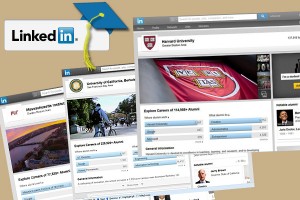Sign up for my FREE parent tips email and get my FREE Ebook on college financing!
For many high school seniors, the start of the new school year also marks the official start of the college application process. While students should begin planning and research as early as 9th and 10th grade, there are many 12th graders who may just be diving in now.
With early application deadlines just around the corner (November 1st and 15th), Dr. Katherine Cohen, CEO and founder of IvyWise (www.IvyWise.com) and LinkedIn Higher Ed Expert, urges high school seniors who may be off to a bit of a late start to do these three things right away:
Narrow down your college list.
 Students should end up with a list of 12 to 15 good-fit schools, a balanced list of reach, target and likely schools, all of which are an academic, social and financial fit. A great place to start your research is LinkedIn, which provides aspiring students and young professionals with the opportunity to make informed decisions on which universities, majors and skills will help them achieve personal and professional success in years ahead. LinkedIn University pages allows students to learn what’s happening on campus, ask questions of faculty, staff, students and alumni, check out notable alumni and explore the professional paths of graduates.
Students should end up with a list of 12 to 15 good-fit schools, a balanced list of reach, target and likely schools, all of which are an academic, social and financial fit. A great place to start your research is LinkedIn, which provides aspiring students and young professionals with the opportunity to make informed decisions on which universities, majors and skills will help them achieve personal and professional success in years ahead. LinkedIn University pages allows students to learn what’s happening on campus, ask questions of faculty, staff, students and alumni, check out notable alumni and explore the professional paths of graduates.
Create a college application checklist.
Senior year of high school can be overwhelming for many students. It’s often the most rigorous year academically, and the college application process has gotten a lot more complex since mom and dad applied. It’s important to create a college application checklist and calendar with key dates now so that you don’t miss any important deadlines. Be sure to include due dates for early and regular applications at each school to which you’re applying, standardized test dates, deadlines to apply for scholarships and financial aid, as well as deadlines for school projects, mid-terms and final exams.
Approach teachers for letters of recommendation.
Most selective colleges and universities require one to three recommendation letters with a student’s application, usually from a guidance counselor and at least one teacher. If you haven’t done so already, identify two 11th grade teachers who know you well—not just the ones who gave you the easy “A”—and ask them to write a letter of recommendation immediately. Teachers receive many requests and are not required to write these letters. Often, teachers will limit the number of letters they write, so students need to ask early. Be sure to provide a copy of your resume, examples of your completed assignments and information about the colleges to which you are applying, so they can personalize your letter. Also, don’t forget to write your own letter to thank your teachers for their time!
